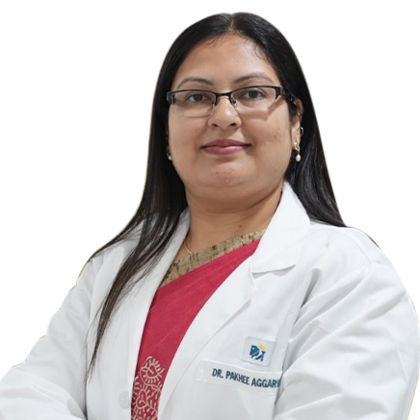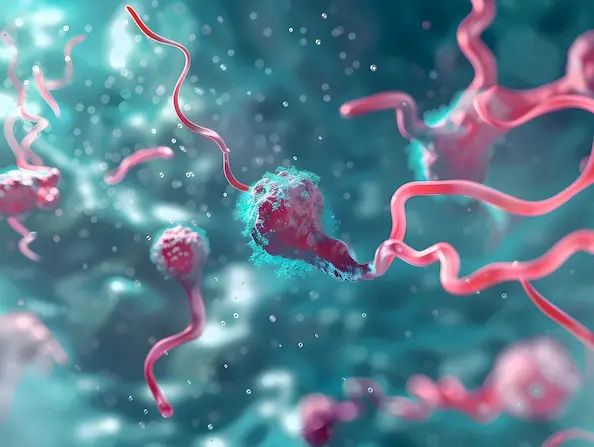Guide to Pcos Management With Lifestyle Changes And Remedies
Discover effective PCOS management strategies with lifestyle changes, balanced diet, and natural remedies. Learn how to manage symptoms, improve fertility, and enhance overall health.


Introduction
Polycystic ovary syndrome (PCOS) is one of the most common hormonal endocrine disorders affecting people with ovaries during their reproductive years, yet it remains widely misunderstood. Characterised by a complex interplay of hormonal imbalances, insulin resistance, and inflammation, PCOS manifests through a variety of challenging symptoms like irregular periods, unwanted hair growth, acne, and weight struggles. If you're navigating this condition, you're not alone, and the most empowering fact to know is that while there's no cure, effective PCOS management is absolutely achievable. This comprehensive guide moves beyond quick fixes to explore the foundational lifestyle changes, evidence-based natural remedies, and medical strategies that can help you reclaim control over your health. We'll delve into how nutrition, specific types of exercise, stress reduction, and targeted supplements can work in synergy to balance your hormones, alleviate symptoms, and significantly improve your quality of life.
Understanding PCOS: More Than Just Ovarian Cysts
What Exactly is PCOS?
PCOS is a multifaceted condition primarily driven by two key factors: hormonal imbalance (particularly elevated
androgens, or "male" hormones) and insulin resistance. Insulin resistance means your body's cells don't respond effectively to insulin, causing your pancreas to produce more. This excess insulin can increase androgen production, which disrupts ovulation and causes the classic symptoms of PCOS. The name itself is a misnomer; not everyone with PCOS has cysts, and having cysts doesn't automatically mean you have PCOS.
Common Signs and Symptoms
The presentation of PCOS varies greatly, but common signs include:
- Irregular menstrual cycles or absent periods (oligo-ovulation or anovulation)
- Hirsutism (excessive hair growth on the face, chest, or back)
- Persistent acne, especially along the jawline
- Thinning hair or hair loss on the scalp (alopecia)
- Weight gain or difficulty losing weight, particularly around the abdomen
- Darkening of the skin in body folds (acanthosis nigricans)
- Skin tags
Getting a Proper Diagnosis
Diagnosis typically follows the Rotterdam Criteria, where you need to meet at least two of these three conditions:
- Irregular or absent ovulation.
- Clinical and/or biochemical signs of high androgen levels.
- Polycystic ovaries on an ultrasound scan.
It's crucial to rule out other conditions with similar symptoms, such as thyroid disorders or congenital adrenal
hyperplasia. If you suspect you have PCOS, consult a doctor online with Apollo24|7 for an initial evaluation and to
discuss the necessary diagnostic steps.
Consult a Gynaecologist for the best advice
The Foundation of PCOS Management: Lifestyle and Dietary Changes
How Diet Directly Impacts PCOS Symptoms
For many, dietary modification is the most powerful tool for managing PCOS and insulin resistance. The goal isn't a
restrictive "diet" but a sustainable eating pattern that helps regulate blood sugar levels, reduce inflammation, and
support a healthy weight.
Foods to Embrace for Hormonal Balance
- High-Fiber Vegetables: Broccoli, cauliflower, Brussels sprouts, and leafy greens help slow digestion and reduce insulin impact.
- Lean Protein: Chicken, fish, tofu, and legumes promote satiety and help manage blood sugar spikes.
- Healthy Fats: Avocados, olive oil, nuts, and seeds reduce inflammation.
- Low-Glycemic Fruits: Berries, apples, and pears are better choices than high-sugar fruits like watermelon or pineapple.
- Complex Carbohydrates: Quinoa, oats, and whole-grain bread provide sustained energy without drastic blood sugar
fluctuations.
Foods to Limit or Avoid
- Refined Carbohydrates: White bread, pasta, pastries, and white rice cause rapid spikes in blood sugar and insulin.
- Sugary Foods and Drinks: Sodas, juices, and desserts are major contributors to insulin resistance.
- Inflammatory Foods: Excessive fried foods, red meat, and processed snacks can worsen inflammation.
The Power of Movement: Exercise for Insulin Sensitivity and Stress
Physical activity is a cornerstone of PCOS management. It helps your muscles use glucose more effectively, thereby lowering insulin levels. It also aids in weight management, reduces stress, and improves mood.
Best Types of Exercise for PCOS
- Strength Training: Building muscle mass increases your metabolic rate, making your body more efficient at using insulin and burning calories, even at rest. This is crucial for tackling PCOS belly fat.
- High-Intensity Interval Training (HIIT): Short bursts of intense activity followed by rest periods are highly effective for improving insulin sensitivity.
- Moderate Cardio: Brisk walking, swimming, or cycling for 30 minutes a day can yield significant benefits.
- Mind-Body Exercises: Yoga and pilates are excellent for reducing cortisol (the stress hormone), which can exacerbate PCOS symptoms.
The Critical Role of Sleep and Stress Management
Chronic stress and poor sleep elevate cortisol levels, which can further disrupt insulin and hormone balance. Prioritising 7-9 hours of quality sleep per night and incorporating stress-reduction techniques like meditation, deep breathing, or spending time in nature is non-negotiable for holistic PCOS management.
Exploring Natural Remedies and Supplements for PCOS
Inositol: A Key Player in Insulin Metabolism
Inositol, particularly a blend of myo-inositol and D-chiro-inositol (in a 40:1 ratio), is one of the most researched
supplements for PCOS. It functions as a secondary messenger for insulin, helping to improve the body's sensitivity to it. Studies show it can aid in regulating menstrual cycles, improving ovulation, and reducing triglyceride levels.
Other Promising Supplements
- Vitamin D: Deficiency is common in women with PCOS and is linked to insulin resistance and inflammation. Apollo24|7 offers a convenient home collection for tests like vitamin D to check your levels.
- Berberine: This compound, found in several plants, has shown similar efficacy to Metformin in improving insulin
sensitivity and regulating cycles. - Omega-3 Fatty Acids: Found in fish oil, they help reduce inflammation and triglyceride levels.
Herbal Allies: Spearmint Tea and Cinnamon
- Spearmint Tea: Studies suggest drinking spearmint tea twice daily may have anti-androgen effects, potentially reducing hirsutism.
- Cinnamon: This spice may help improve menstrual cyclicity and insulin sensitivity.
Always consult with a healthcare provider before starting any new supplement regimen, as they can interact with medications or may not be suitable for everyone.
Medical Interventions and When to Seek Them
While lifestyle changes are powerful, medical treatments are often necessary. Medications for regulating cycles include hormonal birth control to induce regular periods and reduce androgen levels, and Metformin to improve insulin resistance. For those trying to conceive, fertility drugs like Letrozole or Clomiphene are common first steps. Crucially, addressing the anxiety and depression that often accompany PCOS with therapy or counseling is a vital part of a complete management plan. If your condition does not improve after trying lifestyle methods, book a physical visit to a doctor with Apollo24|7 to create a tailored medical strategy.
Building Your Personalised PCOS Management Plan
There is no one-size-fits-all solution. The best plan is one you can stick to. Start by tracking your food, mood, and symptoms in a journal to identify triggers. Set small, achievable goals—like adding one serving of vegetables to each meal or taking a 15-minute walk three times a week—rather than attempting a complete overhaul overnight. Celebrate small victories; they lead to lasting change.
Conclusion: Empowering Yourself on Your PCOS Journey
Managing PCOS is a journey of understanding your body's unique language and responding with compassion and consistency. It's about layering sustainable habits—nutritious eating, joyful movement, restorative sleep, and effective stress management—to create a powerful cumulative effect on your hormonal health. While the path may have challenges, remember that you have a toolkit of strategies at your disposal, from dietary tweaks and specific supplements to medical support when needed. By taking a proactive and holistic approach, you can significantly reduce symptoms, improve your overall well-being, and feel empowered in your health. Start with one change today, and build from there. You have the power to shape your journey with PCOS.
Consult a Gynaecologist for the best advice
Consult a Gynaecologist for the best advice

Dr. Sreeparna Roy
Obstetrician and Gynaecologist
8 Years • MBBS , MS (OBSTETRICS & GYNAECOLOGY), Fellowship in Infertility, Endoscopy & Ultrasonography), Fellowship in Laparoscopy & Hysteroscopy,DRM
Kolkata
Dr Utsa Basu Clinic, Kolkata

Dr. Revathi S Rajan
Obstetrician and Gynaecologist
24 Years • MBBS, DGO, DNB.FFMM
Bengaluru
Apollo Clinic, JP nagar, Bengaluru
Dr. Navin Srinivasan
Gynaecological Oncologist
9 Years • MBBS, MS DNB(OBS-GYNAE), MCH (GYNAE ONCOLOGY)
Bengaluru
Apollo Clinic Mahadevapura, Bengaluru

Dr. Pakhee Aggarwal
Gynaecological Oncology & Robotic Surgery
18 Years • MBBS, MS, MRCOG (UK), FICOG, MIPHA, UICC Robotic Gynae-Oncology Fellowship (Canada), Commonwealth Gynae-Oncology Fellowship (Oxford, UK)
Delhi
Apollo Hospitals Indraprastha, Delhi
(25+ Patients)

Dr. Swati Shah
Surgical Oncologist
15 Years • DNB Surgical Oncology, certified Robotic Cancer Surgeon
Ahmedabad
Apollo Hospitals Gandhinagar, Ahmedabad
(25+ Patients)
Consult a Gynaecologist for the best advice

Dr. Sreeparna Roy
Obstetrician and Gynaecologist
8 Years • MBBS , MS (OBSTETRICS & GYNAECOLOGY), Fellowship in Infertility, Endoscopy & Ultrasonography), Fellowship in Laparoscopy & Hysteroscopy,DRM
Kolkata
Dr Utsa Basu Clinic, Kolkata

Dr. Revathi S Rajan
Obstetrician and Gynaecologist
24 Years • MBBS, DGO, DNB.FFMM
Bengaluru
Apollo Clinic, JP nagar, Bengaluru
Dr. Navin Srinivasan
Gynaecological Oncologist
9 Years • MBBS, MS DNB(OBS-GYNAE), MCH (GYNAE ONCOLOGY)
Bengaluru
Apollo Clinic Mahadevapura, Bengaluru

Dr. Pakhee Aggarwal
Gynaecological Oncology & Robotic Surgery
18 Years • MBBS, MS, MRCOG (UK), FICOG, MIPHA, UICC Robotic Gynae-Oncology Fellowship (Canada), Commonwealth Gynae-Oncology Fellowship (Oxford, UK)
Delhi
Apollo Hospitals Indraprastha, Delhi
(25+ Patients)

Dr. Swati Shah
Surgical Oncologist
15 Years • DNB Surgical Oncology, certified Robotic Cancer Surgeon
Ahmedabad
Apollo Hospitals Gandhinagar, Ahmedabad
(25+ Patients)
More articles from Pcod Pcos Treatment
Frequently Asked Questions
1. What is the best diet for PCOS weight loss?
There is no single 'best' diet, but the most effective approaches focus on a low-glycemic, anti-inflammatory pattern. This means emphasising whole foods, high fiber, lean protein, and healthy fats while minimising processed foods, sugar, and refined carbs. The goal is steady blood sugar control, which facilitates weight loss.
2. Can I get pregnant naturally with PCOS?
Yes, many women with PCOS do conceive naturally. Improving insulin sensitivity through lifestyle changes is the first and most crucial step, as it can help restart ovulation. Weight loss (if overweight), regular exercise, and supplements like inositol can significantly improve fertility outcomes.
3. How does spearmint tea help with PCOS symptoms?
Spearmint tea has anti-androgenic properties, meaning it may help lower the level of free testosterone in the blood. This can lead to a reduction in hirsutism (unwanted hair growth) and acne for some women. Studies typically used two cups daily over several months.
4. Are there any specific tests I should get for PCOS?
Beyond the diagnostic criteria, important tests include fasting insulin and glucose, HbA1c (a 3-month average of blood sugar), lipid panel, vitamin D, and thyroid function tests. These provide a fuller picture of metabolic health. Apollo24|7 offers a convenient home collection for tests like HbA1c and Vitamin D.
5. Is PCOS management possible without birth control pills?
Absolutely. While birth control is a common tool to regulate cycles and manage androgen levels, it's not the only option. For those who cannot or prefer not to use it, lifestyle modifications, Metformin for insulin resistance, and natural remedies like inositol can be very effective in managing symptoms and restoring cycle regularity.



